가상현실(VR)이 응급서비스 산업에 미치는 영향: 교육 및 운영 강화(The Impact of Virtual Reality o…
본문
가상 현실(VR) 기술은 교육을 강화하고 운영을 개선하기 위한 새롭고 혁신적인 방법을 제공하면서 응급 서비스 산업을 빠르게 변화시키고 있습니다. 과거에, 비상 대응자들은 다양한 시나리오에 대한 훈련을 위해 강의, 역할극 연습, 필기 시험과 같은 전통적인 방법에 의존했습니다. 그러나 이러한 방법에는 실제 상황의 몰입적이고 상호 작용적인 요소가 부족했습니다.
VR 기술은 보다 현실적이고 매력적인 훈련 경험을 제공함으로써 이 문제에 대한 해결책을 제공합니다. 응급 대응자는 VR을 사용하여 자연 재해, 화재, 사고 및 의료 응급 상황을 포함한 광범위한 시나리오를 시뮬레이션할 수 있습니다. VR에 의해 제공되는 몰입형 환경은 대응자들이 통제된 환경에서 응급 상황을 다루는 연습을 할 수 있게 하여 의사 결정 기술을 향상시키고 자신감을 쌓습니다.
교육 외에도 VR 기술은 응급 서비스 산업의 운영을 개선하는 데에도 사용되고 있습니다. 예를 들어, VR을 사용하여 재해 관리 중에 서로 다른 부서 간의 통신 및 조정 기능을 향상시킬 수 있습니다. VR 기술은 공유 가상 환경을 제공함으로써 응급 대응자가 서로의 관점을 더 잘 이해할 수 있도록 도와 협업을 개선하고 응답 시간을 단축할 수 있습니다.
한국에서는 응급 서비스 산업에서 VR 기술의 사용이 이미 긍정적인 영향을 미치고 있습니다. 서울시 소방재난본부는 소방관들이 통제된 환경에서 복잡하고 위험한 상황을 다루는 연습을 할 수 있도록 훈련 프로그램에 VR 기술을 구현했습니다. 소방방재청은 또한 재난 관리 동안 다른 부서 간의 의사소통과 조정을 개선하기 위해 VR 기술을 사용했습니다.
결론적으로, VR 기술은 응급 서비스 산업에 지대한 영향을 미치고 있습니다. VR 기술은 현실적인 훈련 시뮬레이션을 제공하고 운영을 강화함으로써 비상 대응자들이 비상 상황을 더 잘 준비하고 더 효과적으로 대처할 수 있도록 돕고 있습니다. VR 기술이 지속적으로 발전함에 따라 응급 서비스 산업이 VR 기술을 활용하여 프로세스를 개선할 수 있는 새롭고 혁신적인 방법을 볼 수 있을 것으로 보입니다.
VR 기술은 교육 및 운영에 대한 이점 외에도 응급 서비스 산업의 다른 측면을 개선할 수 있는 잠재력이 있습니다. 예를 들어, VR 기술은 가상 재해 시뮬레이션을 만드는 데 사용될 수 있으며, 비상 대응자가 잠재적인 재해를 평가하고 준비할 수 있습니다. 이를 통해 실제 재해 발생 시 재해 대비 성능이 향상되고 대응 시간이 단축될 수 있습니다.
VR 기술은 응급 서비스 산업을 크게 향상시킬 수 있는 잠재력을 가지고 있지만, 고려해야 할 몇 가지 과제도 있습니다. 첫째, VR 기술은 특히 소규모 응급 서비스 기관에 비쌀 수 있습니다. 두 번째로, VR 기술과 관련된 학습 곡선이 있으며, 응급 대응자는 이를 효과적으로 사용할 수 있도록 교육을 받아야 합니다.
이러한 도전에도 불구하고, 응급 서비스 산업에서 VR의 미래는 밝아 보입니다. VR 기술이 점점 더 접근하기 쉽고 저렴해짐에 따라, 더 많은 응급 서비스 기관들이 그것을 채택할 것입니다. 또한, VR 기술이 지속적으로 발전함에 따라 응급 서비스 산업이 VR 기술을 활용하여 프로세스를 개선할 수 있는 새롭고 혁신적인 방법을 볼 수 있을 것으로 보입니다.
결론적으로, 응급 서비스 산업에서 VR의 역할이 빠르게 확대되고 있으며, 교육 및 운영을 크게 향상시킬 수 있는 잠재력을 가지고 있습니다. VR 기술은 현실적인 훈련 시뮬레이션을 제공하고, 의사소통과 조정을 강화하며, 재난 대비를 개선함으로써, 비상 대응자들이 비상 상황을 더 잘 준비하고 더 효과적으로 대처할 수 있도록 도울 수 있습니다. 선두를 유지하고자 하는 응급 서비스 기관은 VR 기술을 프로세스에 통합하는 것을 고려해야 합니다.
가상 현실(VR) 기술은 교육을 강화하고 운영을 개선하기 위한 새롭고 혁신적인 방법을 제공함으로써 응급 서비스 산업에 상당한 영향을 미치고 있습니다. VR은 자연 재해, 화재, 사고 및 의료 응급 상황을 포함한 다양한 시나리오를 시뮬레이션하여 응급 대응자에게 보다 현실적이고 매력적인 교육 경험을 제공합니다. VR이 제공하는 몰입형 환경은 의사 결정 기술을 향상시키고 비상 대응자에 대한 자신감을 쌓는 데 도움이 됩니다. VR 기술은 교육 외에도 재난 관리 과정에서 서로 다른 부서 간의 의사소통과 조정을 개선하는 데에도 사용되고 있습니다. 한국에서는 이미 서울시 소방재난본부와 소방방재청의 교육 프로그램에 VR 기술이 구현되었습니다. VR 기술과 관련된 높은 비용과 학습 곡선에도 불구하고, 응급 서비스 산업에서 VR의 미래는 밝고 더 많은 기관들이 있어 보입니다
Virtual reality (VR) technology is rapidly transforming the emergency services industry, offering new and innovative ways to enhance training and improve operations. In the past, emergency responders relied on traditional methods such as lectures, role-playing exercises, and written tests to train for various scenarios. However, these methods lacked the immersive and interactive elements of real-life situations.
VR technology offers a solution to this problem by providing a more realistic and engaging training experience. Emergency responders can use VR to simulate a wide range of scenarios, including natural disasters, fires, accidents, and medical emergencies. The immersive environment provided by VR allows responders to practice handling emergencies in a controlled setting, enhancing their decision-making skills and building confidence.
In addition to training, VR technology is also being used to improve operations in the emergency services industry. For example, VR can be used to enhance communication and coordination between different departments during disaster management. By providing a shared virtual environment, VR technology can help emergency responders to better understand each other's perspectives, leading to improved collaboration and faster response times.
In Korea, the use of VR technology in the emergency services industry is already having a positive impact. The Seoul Metropolitan Fire and Disaster Management Headquarters has implemented VR technology in their training programs, allowing firefighters to practice handling complex and dangerous situations in a controlled setting. The Korean National Emergency Management Agency has also used VR technology to improve communication and coordination between different departments during disaster management.
In conclusion, VR technology is having a profound impact on the emergency services industry. By providing realistic training simulations and enhancing operations, VR technology is helping emergency responders to be better prepared and more effective in handling emergencies. As VR technology continues to evolve, it is likely that we will see new and innovative ways for the emergency services industry to utilize VR technology to improve their processes.
In addition to its benefits in training and operations, VR technology has the potential to improve other aspects of the emergency services industry. For example, VR technology can be used to create virtual disaster simulations, allowing emergency responders to assess and prepare for potential disasters. This can lead to improved disaster preparedness and a faster response time in the event of an actual disaster.
While VR technology has the potential to greatly enhance the emergency services industry, there are also some challenges that need to be considered. Firstly, VR technology can be expensive, especially for smaller emergency services agencies. Secondly, there is a learning curve associated with VR technology, and emergency responders must be trained to effectively use it.
Despite these challenges, the future of VR in the emergency services industry looks bright. As VR technology becomes more accessible and affordable, it is likely that more emergency services agencies will adopt it. Furthermore, as VR technology continues to evolve, it is likely that we will see new and innovative ways for the emergency services industry to utilize VR technology to improve their processes.
In conclusion, the role of VR in the emergency services industry is rapidly expanding, and it has the potential to greatly enhance training and operations. By providing realistic training simulations, enhancing communication and coordination, and improving disaster preparedness, VR technology can help emergency responders to be better prepared and more effective in handling emergencies. Emergency services agencies that are looking to stay ahead of the curve should consider incorporating VR technology into their processes.
Virtual Reality (VR) technology is having a significant impact on the emergency services industry by offering new and innovative ways to enhance training and improve operations. VR provides a more realistic and engaging training experience for emergency responders by simulating a range of scenarios, including natural disasters, fires, accidents, and medical emergencies. The immersive environment provided by VR helps enhance decision-making skills and build confidence in emergency responders. In addition to training, VR technology is also being used to improve communication and coordination between different departments during disaster management. In Korea, VR technology has already been implemented in the training programs of the Seoul Metropolitan Fire and Disaster Management Headquarters and the Korean National Emergency Management Agency. Despite the high costs and learning curve associated with VR technology, the future of VR in the emergency services industry looks bright and more agencies are expected to adopt it in the future. In conclusion, VR technology has the potential to greatly enhance the emergency services industry.















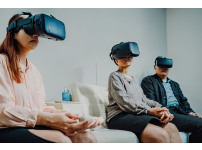
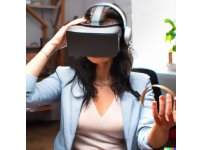
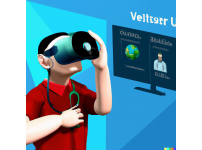
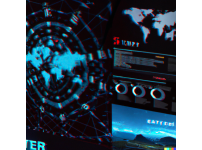
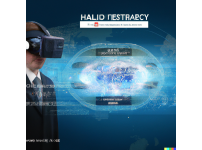
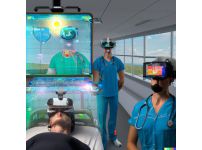
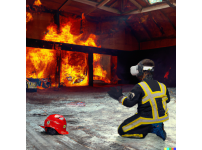
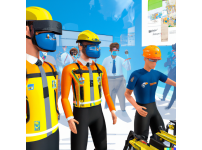
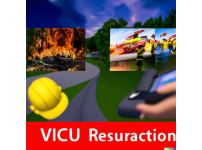
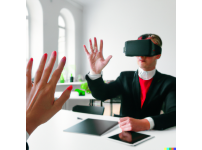
댓글목록 0